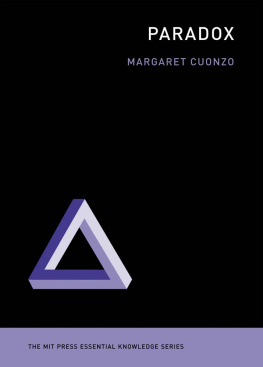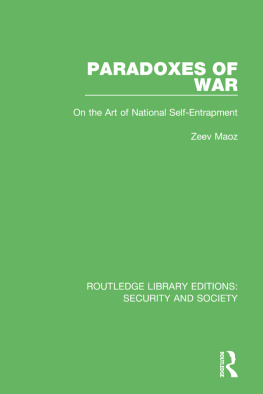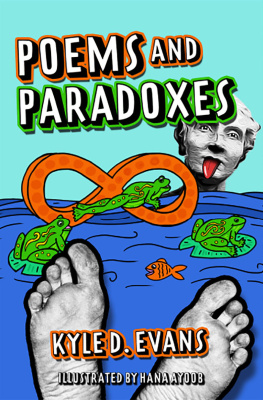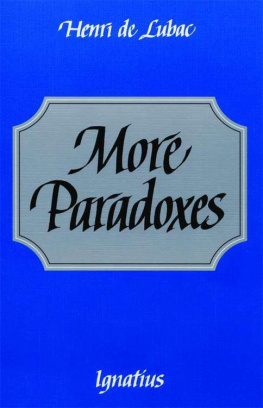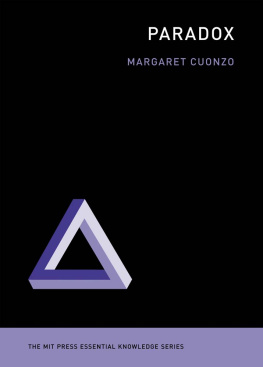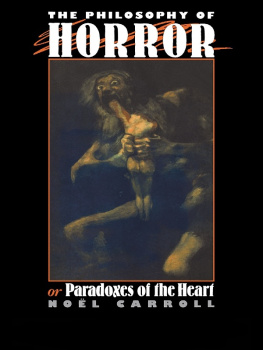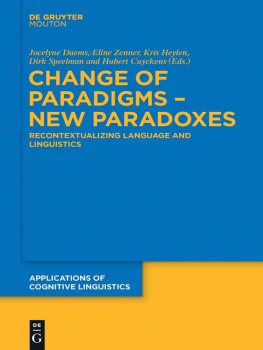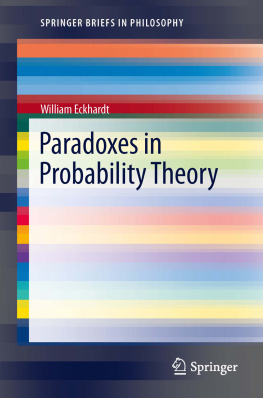THIRD EDITION
R. M. Sainsbury
CAMBRIDGE UNIVERSITY PRESS
Cambridge, New York, Melbourne, Madrid, Cape Town, Singapore, So Paulo Cambridge University Press
The Edinburgh Building, Cambridge CB2 8RU, UK
Published in the United States of America by Cambridge University Press, New York www.cambridge.org
Information on this title: www.cambridge.org/9780521896320 R. M. Sainsbury 2009
This publication is in copyright. Subject to statutory exception and to the provision of relevant collective licensing agreements, no reproduction of any part may take place without the written permission of Cambridge University Press. First published in print format 2009
ISBN-13 978-0-521-89632-0 hardback
ISBN-13 978-0-521-72079-3 paperback
Cambridge University Press has no responsibility for the persistence or accuracy of urls for external or third-party internet websites referred to in this publication, and does not guarantee that any content on such websites is, or will remain, accurate or appropriate.
Contents
Foreword to th ird edition page vii Introduction 1
Suggested reading 3
1. Zeno s paradoxes: space, time, and motion 4
1.1 Introduction 4
1.2 Space 5
1.3 The Racetrack 11
1.4 The Racetrack again 15
1.5 Achilles and the Tortoise 19
1.6 The Arrow 19
Suggested reading 21
2. Moral paradoxes 22
2.1 Crime Reduction 22
2.2 Mixed Blessings 27
2.3 Not Being Sorry 31
2.4 Moral dilemmas 34
Suggested reading 39
3. Vagueness: the paradox of the heap 40
3.1 Sorites paradoxes: preliminaries 40
3.2 Sorites paradoxes: some options 46
3.3 Accepting the conclusion: Unger s view 48
3.4 Rejecting the premises: the epistemic theory 49
3.5 Rejecting the premises: supervaluations 51
3.6 Rejecting the reasoning: degrees of truth 56
3.7 Vague objects? 63
Suggested reading 66
4. Acting rationally 69
4.1 Newcomb s paradox 69
4.2 The Prisoner s Dilemma 82
Suggested reading 88
vi Contents
5. Believing rationally
5.1 Paradoxes of confirmation 90
5.1.1 Background 90
5.1.2 The paradox of the Ravens 95
5.1.3 Grue
5.2 The Unexpected Examination 107
5.3 Revising the Unexpected Examination 110
5.4 The Knower 115
Suggested reading 120
6. Classes and truth 123
6.1 Russell s paradox 123
6.2 The Liar: semantic defects 127
6.3 Grounding and truth 129
6.4 The Strengthened Liar 132
6.5 Levels 133
6.6 Self-reference 137
6.7 Indexicality 138
6.8 Indexical circularity 139
6.9 Comparison: how similar are Russell s paradox and the Liar? 142
Suggested reading 145
7. Are any contradictions acceptable? 150
7.1 Contradictions entail everything 151
7.2 A sentence which is both true and false could have
no intelligible content 152
7.3 Three dualities 153
7.4 Negation 155
7.5 Falsehood and untruth 157
Suggested reading 158
Appendix I: Some more paradoxes
Appendix II: Remarks on some text questions and
appended paradoxes
Bibliography
Index
Foreword to third edition
The main change in this edition is the addition of a new chapter on moral paradoxes, which I was inspired to write by reading Smilansky s excellent book Ten Moral Paradoxes . To Saul Smilansky I owe thanks for encour-agement and comments. The new chapter is numbered 2 and subsequent chapters are renumbered accordingly. I placed the new chapter early in the book in the belief that the discussion is more straightforward than just about any of the other chapters.
I have made some small changes elsewhere, notably to the chapter on vagueness (now chapter 3 ) and to the suggested reading. Since the second edition appeared in 1995, the internet has transformed many aspects of our life. There are now many websites which help people doing philoso-phy at every level. The Stanford Encyclopedia of Philosophy (plato.stanford. edu) should be the first place to turn if your curiosity has been aroused by this text. Someone with internet access can now do serious research in philosophy, even without the advantage of a university library.
My thanks to Daniel Hill for many useful suggestions for this edition. Introduction
Paradoxes are fun. In most cases, they are easy to state and immediately provoke one into trying to solve them.
One of the hardest paradoxes to handle is also one of the easiest to state: the Liar paradox. One version of it asks you to consider the man who simply says, What I am now saying is false. Is what he says true or false? The problem is that if he speaks truly, he is truly saying that what he says is false, so he is speaking falsely; but if he is speaking falsely, then, since this just what he says he is doing, he must be speaking truly. So if what he says is false, it is true; and if it is true, it is false. This paradox is said to have tormented many ancient logicians and caused the premature death of at least one of them, Philetas of Cos. Fun can go too far.
Paradoxes are serious. Unlike party puzzles and teasers, which are also fun, paradoxes raise serious problems. Historically, they are associated with crises in thought and with revolutionary advances. To grapple with them is not merely to engage in an intellectual game, but is to come to grips with key issues. In this book, I report some famous (and some less famous) paradoxes and indicate how one might respond to them. These responses lead into some rather deep waters.
This is what I understand by a paradox: an apparently unacceptable conclusion derived by apparently acceptable reasoning from apparently acceptable premises. Appearances have to deceive, since the acceptable cannot lead by acceptable steps to the unacceptable. So, generally, we have a choice: either the conclusion is not really unacceptable, or else the starting point, or the reasoning, has some non-obvious flaw.
Paradoxes come in degrees, depending on how well appearance cam-ouflages reality. Let us pretend that we can represent how paradoxical some-thing is on a ten-point scale. The weak or shallow end we shall label 1; the cataclysmic end, home of paradoxes that send seismic shudders through a wide region of thought, we shall label 10. Serving as a marker for the point labeled 1 is the so-called Barber paradox: in a certain remote Sicilian village, approached by a long ascent up a precipitous mountain road, the barber shaves all and only those villagers who do not shave
2 Paradoxes
themselves. Who shaves the barber? If he himself does, then he does not (since he shaves only those who do not shave themselves); if he does not, then he indeed does (since he shaves all those who do not shave them-selves). The unacceptable supposition is that there is such a barber one who shaves himself if and only if he does not. The story may have sounded acceptable: it turned our minds, agreeably enough, to the mountains of inland Sicily. However, once we see what the consequences are, we realize that the story cannot be true: there cannot be such a barber, or such a village. The story is unacceptable. This is not a very deep paradox because the unacceptability is very thinly disguised by the mountains and the remoteness.
At the other end of the scale, the point labeled 10, I shall place the Liar. This placing seems the least that is owed to the memory of Philetas.


